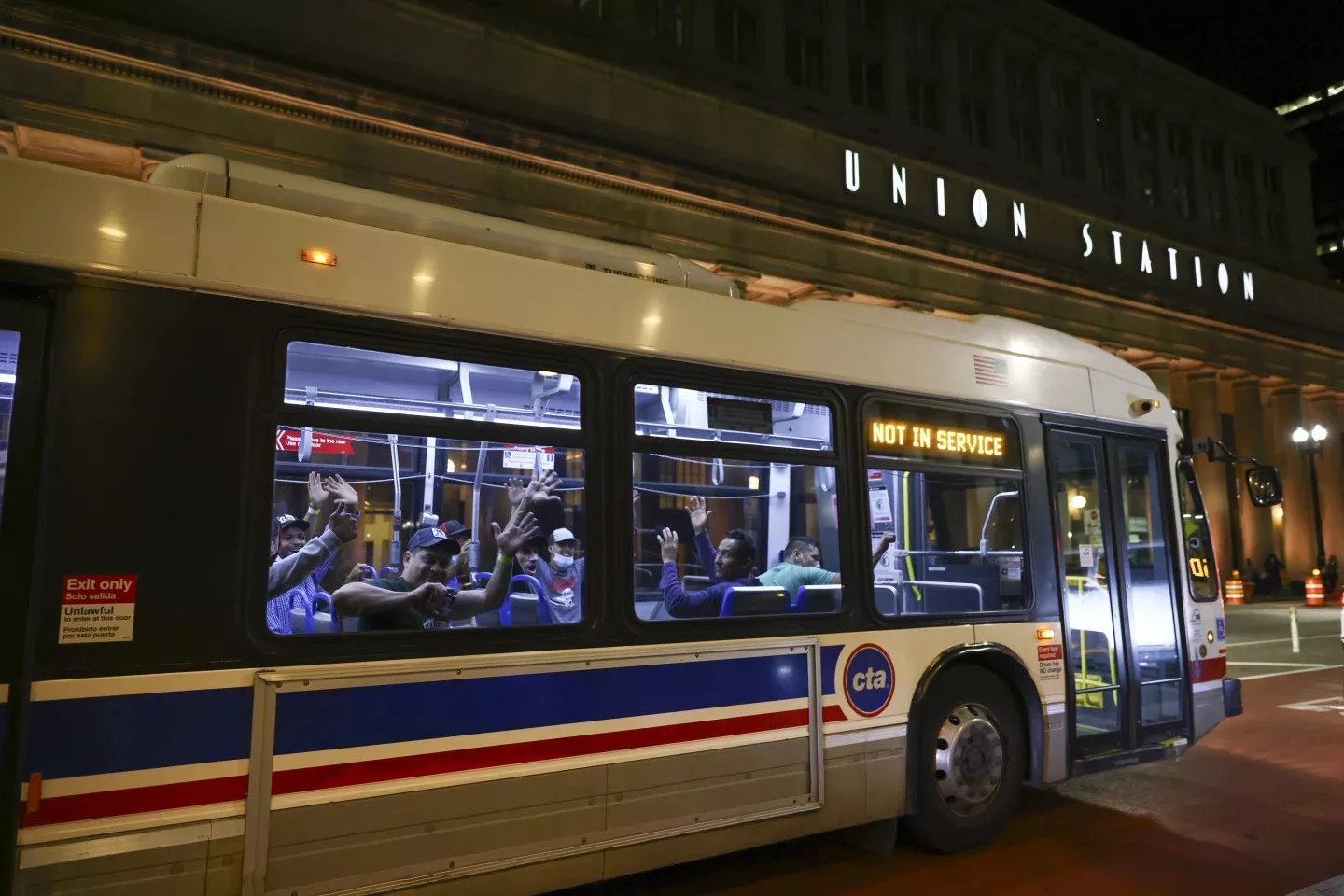
Mayor Brandon Johnson is looking to slow the influx of migrants in the city of Chicago by impounding incoming buses that do not receive a permit from the Chicago Department of Transportation and by looking throughout the state for places to redirect the new arrivals.
About 24,000 migrants have arrived in Chicago over the last 16 months, leading the state to spend over $500 million on migrants this year alone.
A city ordinance that passed on Wednesday allows for Johnson to impound and tow buses that don’t deliver asylum seekers to designated “landing zones.” Johnson said the ordinance is in response to actions at the U.S. southern border.
“It was passed today, mainly because we have a real irresponsible, inhumane practice that is coming from the border,” Johnson said. “What I have said from the very beginning is we have to create some structure, some order, some calm to this crisis, and my leadership has done just that.”
The first bus to be impounded happened just hours after the ordinance was passed by the city council.
The migrant issue has been ongoing, as Johnson in September said they will not be able to keep taking care of the migrants without significant help from the federal government.
“Let me state this clearly, the city of Chicago can not go on welcoming new arrivals safely and capably without significant support and immigration policy changes,” Johnson said.
With continued controversy over how taxpayer resources are being spent on the crisis, including nearly $1 million on the Brighton Park migrant basecamp tent that was scrapped over environmental concerns and expensive housing contracts, the mayor said his administration is busy.
“I don’t know if there is another administration that is working as hard as the people in this administration,” Johnson said.
Texas Gov. Greg Abbott has been criticized by Johnson and Illinois Gov. J.B. Pritzker for his handling of the migrant situation. Abbott posted on X, formerly Twitter, that he has sent migrants to Chicago to help “overwhelmed” border cities. Despite Chicago’s sanctuary city status, Johnson is now seeking to do something similar.
“We are searching for property all over the state of Illinois because this is a crisis and it will not go away because people are upset,” Johnson said. “This inhumane treatment further endangers the safety and security of asylum seekers and adds additional strain to city departments, volunteers, and mutual aid partners tasked with easing what is already a harsh transition.”
Chicago Alderman Chris Taliaferro told The Center Square that people are “upset” due to the city refusing to end its status as a sanctuary city.
“My constituents are very concerned about whether or not we remain a sanctuary city and having that opportunity put before them on a ballot,” Taliaferro said. “A lot of our residents, particularly those in the Black community, want to be heard as to whether or not we remain a sanctuary city.”
Previous reporting from The Center Square revealed that several municipalities in Illinois do not want the migrants sent to them.
On Wednesday, the Village of Oak Park’s Emergency Operations Center sent a memo to the village manager saying it no longer has space for asylum seekers.
“The Village does not have the capacity to accept additional new arrivals,” the memo stated.
This is not the first time Johnson has floated the idea of sending the arrivals somewhere else, and it is not the first time he has received pushback from other towns’ officials.
In August, Johnson said he was looking at other Cook County towns to send the migrants, including Orland Park.
Orland Park Mayor Keith Pekau said they can not support that idea.
“None of us have the resources for this. We do not have health departments. We do not have that kind of stuff,” Pekau said. “They have called us a sanctuary state, right? Here’s the deal, at the state level, the state has been ripping all the municipalities off by the Local Government Distributive Fund since prior to [Gov. J.B.] Pritzker.”
The LGDF is local governments’ share of Illinois income tax money the state collects that is supposed to be distributed to local government but the state has not fully shared the required amount year after year.
Illinois state government has already spent over half a billion dollars to care for the noncitizen arrivals, Pritzker said, with the prospect of a supplemental appropriation to be considered by state legislators when they return mid-January.
By Andrew Hensel for the Illinois Radio Network
